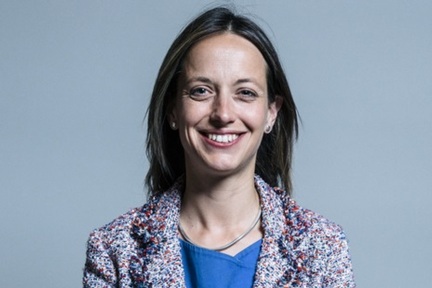Exclusive: Care minister says care workers are like bee keepers who are 'fully protected' from being stung
Care workers are like beekeepers working on hives during the COVID-19 pandemic which the government is protecting from getting stung, says care minister Helen Whately in this opinion piece for carehome.co.uk and homecare.co.uk.

Viral outbreaks rarely limit themselves to one country, community or type of person. Our amazing health and social care workforce are working tirelessly to keep us safe and protected and I am hugely thankful for their work.
The coronavirus pandemic has not been limited to hospitals, clinics and GP practices. Nor has it spared staff, residents and visitors in care homes and other residential settings.
That our health and care professionals continue to care so brilliantly for those we hold dear in these stressful circumstances is a testament to their skills, dedication and compassion to do the right thing.
It cannot surprise anyone, therefore, that the virus poses a risk to family, friends and loved ones in their own homes too – especially in situations where care and support is being brought in from outside.
A 'clear and present risk' for care homes and home care
With the disease a clear and present risk in both residential and domestic care settings, it’s vital we provide the right support and protection where we can.
Two months ago, the government released a detailed adult social care action plan which set out how people receiving adult social care would be helped through this pandemic. We have now provided £3.2 billion to local councils to help them manage its impact.
In a further boost to the care sector, last month we issued a new care homes support package, supported by a £600m infection control fund, setting out the steps needed to keep residents safe.
The package of measures comes after existing guidance on how to maintain social distancing and includes testing of all care home residents and asymptomatic staff (that’s staff who may not show symptoms) within the home.
The measures also include named clinical leads for every care home, personal protective equipment (PPE) training and new processes to speed the ordering and distribution of tests, equipment and other vital resources.
We are determined to protect the mental and physical health of our amazing care workforce too.
For example, a new crisis text service ‘Our Frontline’, a collaboration between Samaritans, Shout, Hospice UK and Mind has recently been launched to provide information, emotional support and access to those working on the frontline, including in social care.
Social care staff can send a message with the word ‘FRONTLINE’ to 85258 to start a conversation. This service is free on all major mobile networks and is a direct support for those who may be struggling to cope.
More broadly, we urge any care staff feeling the strain to speak to their managers to get the support they need to stay mentally as well as physically well.
It’s not just in care homes where infection risks, stresses and anxieties take hold of course. In houses, flats, mobile homes and other private dwellings, care workers and individuals providing - or receiving - care also need support and protection.
As with care homes, we’re working with the home care sector to help providers and their staff improve infection controls, for themselves and those they care for.
Indeed, all social care professionals – including home care workers – who present symptoms are eligible for testing in the same way as their equivalents in care homes and other social care settings.
Finding ways to limit the number of different staff entering a home is also vital. Continuity of care has never been more important.
That’s why we have published brand new guidance for the home care sector that includes advice to home care providers on how to reduce the number of outside contacts for those shielding or in ‘at-risk’ groups, by pooling staff and services usually provided by different agencies.
We appreciate this will be challenging for some providers but ask that they follow as much of the guidance as they practically can.
Likewise, we have emphasised how essential it is to prevent unnecessary contact between staff themselves, for example, by holding team meetings and handovers remotely or staggering equipment collection times where possible.
‘We take the sting out of this unwelcome visitor’
In tandem with the health and wellbeing support available, this is about giving our care and support professionals the tools and resources they need to keep themselves safe, well and protected – just as they go above and beyond to do the same for us.
If you’re a bee keeper tending a hive, you want your protection to be all over to avoid getting stung.
Likewise, we’re equipping our incredible health and care workforce to make sure they can enter wards, clinics, care homes and dwellings fully protected.
Only with the combined talents of these amazing men and women can we take the sting out of this unwelcome visitor once and for all.
Latest News
 29-Jul-24
Dementia Bus gives carehome.co.uk staff insight into life with dementia
29-Jul-24
Dementia Bus gives carehome.co.uk staff insight into life with dementia
 01-Mar-24
Find out the top care homes in 2024
01-Mar-24
Find out the top care homes in 2024
 21-Mar-23
UK's top care homes in 2023 revealed
21-Mar-23
UK's top care homes in 2023 revealed
 03-Jan-23
carehome.co.uk launches free care helpline
03-Jan-23
carehome.co.uk launches free care helpline
 13-Dec-22
5 mins with Emily Whitehurst, chief operating officer for Constantia Healthcare
13-Dec-22
5 mins with Emily Whitehurst, chief operating officer for Constantia Healthcare